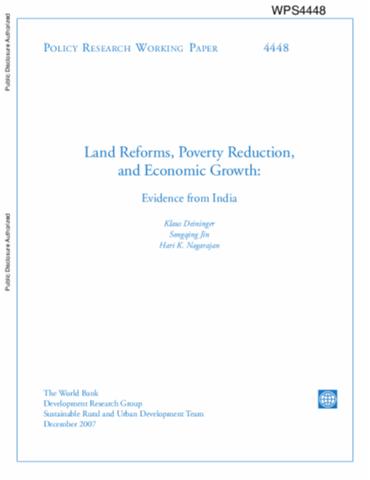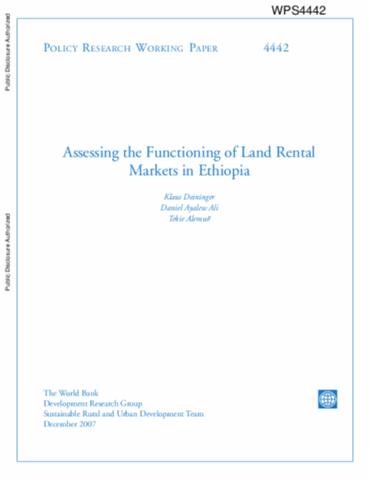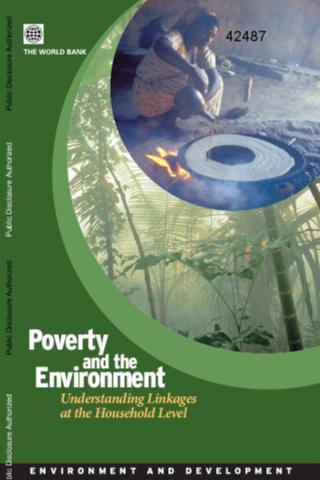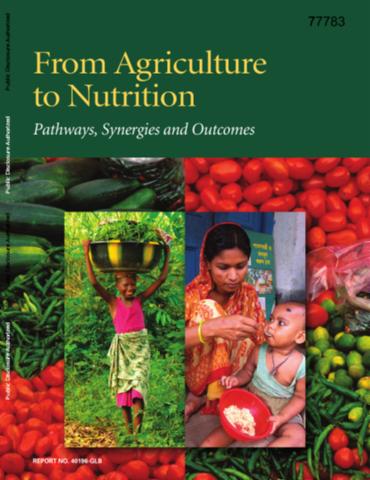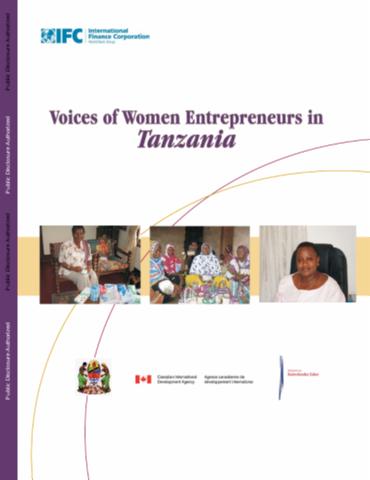The World Bank is a vital source of financial and technical assistance to developing countries around the world. We are not a bank in the ordinary sense but a unique partnership to reduce poverty and support development. The World Bank Group has two ambitious goals: End extreme poverty within a generation and boost shared prosperity.
- To end extreme poverty, the Bank's goal is to decrease the percentage of people living on less than $1.25 a day to no more than 3% by 2030.
- To promote shared prosperity, the goal is to promote income growth of the bottom 40% of the population in each country.
The World Bank Group comprises five institutions managed by their member countries.
The World Bank Group and Land: Working to protect the rights of existing land users and to help secure benefits for smallholder farmers
The World Bank (IBRD and IDA) interacts primarily with governments to increase agricultural productivity, strengthen land tenure policies and improve land governance. More than 90% of the World Bank’s agriculture portfolio focuses on the productivity and access to markets by small holder farmers. Ten percent of our projects focus on the governance of land tenure.
Similarly, investments by the International Finance Corporation (IFC), the World Bank Group’s private sector arm, including those in larger scale enterprises, overwhelmingly support smallholder farmers through improved access to finance, inputs and markets, and as direct suppliers. IFC invests in environmentally and socially sustainable private enterprises in all parts of the value chain (inputs such as irrigation and fertilizers, primary production, processing, transport and storage, traders, and risk management facilities including weather/crop insurance, warehouse financing, etc
For more information, visit the World Bank Group and land and food security (https://www.worldbank.org/en/topic/agriculture/brief/land-and-food-security1
Resources
Displaying 4791 - 4795 of 4907Land Reforms, Poverty Reduction, and Economic Growth : Evidence from India
Recognition of the importance of institutions that provide security of property rights and relatively equal access to economic resources to a broad cross-section of society has renewed interest in the potential of asset redistribution, including land reforms. Empirical analysis of the impact of such policies is, however, scant and often contradictory. This paper uses panel household data from India, together with state-level variation in the implementation of land reform, to address some of the deficiencies of earlier studies.
Assessing the Functioning of Land Rental Markets in Ethiopia
Although a large theoretical literature discusses the possible inefficiency of sharecropping contracts, the empirical evidence on this phenomenon has been ambiguous at best. Household-level fixed-effect estimates from about 8,500 plots operated by households that own and sharecrop land in the Ethiopian highlands provide support for the hypothesis of Marshallian inefficiency. At the same time, a factor adjustment model suggests that the extent to which rental markets allow households to attain their desired operational holding size is extremely limited.
Poverty and Environment : Understanding Linkages at the Household Level
This report seeks to present micro evidence on how environmental changes affect poor households. It focuses primarily on environmental resources that are outside the private sphere, particularly commonly held and managed resources such as forests, fisheries, and wildlife. The objectives for this volume are three-fold. It is first interested in using an empirical data-driven approach to examine the dependence of the poor on natural resources. The second objective is to examine the role of the environment in determining health outcomes.
From Agriculture to Nutrition
The report seeks to analyze what has been learned about how agricultural interventions influence nutrition outcomes in low-and middle-income countries, focusing on the target populations of the millennium development goals-people living on less than a dollar a day. It also sets out to synthesize lessons from past efforts to improve the synergies between agriculture and nutrition outcomes. The report identifies a number of developments in agriculture and nutrition that have transformed the context in which nutrition is affected by agriculture.
Voices of Women Entrepreneurs in Tanzania
The Government of Tanzania is committed to supporting women entrepreneurs with both policy and practical support. The Government of Tanzania has made impressive strides in supporting women entrepreneurs, and its policies reflect a commitment to advancing women. The Ministry of Industry, Trade, and Marketing, which commissioned this report, has established special initiatives to reach out to women, and government supported organizations such as the Small Industries Development Organization (SIDO) have been working to empower women entrepreneurs through training and access to credit.






